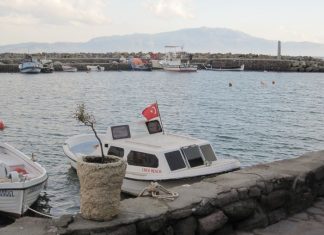Cambyses Questions the Egyptian Priests
After the officers of Memphis were put to death, Cambyses summoned the Egyptian priests to appear before him. He questioned them carefully about the...
The March Against the Ammonians
The men who were sent to attack the Ammonians set out from Thebes. They did not travel alone, for they had guides to lead...
The Return of the Spies
After the spies had seen all that the Ethiopians wished to show them, they returned to Egypt. There they reported everything to King Cambyses....
The Death of King Candaules
When night came, everything was ready for the attack. Gyges knew that there was no way back. He understood that he must either kill...
Gyges Has No Way to Escape
Gyges now found himself trapped. He did not agree with the king’s command, but he could not escape it. He feared the power of...
King Candaules and His Pride
Candaules was the king of Lydia, and he was deeply in love with his wife. He believed that she was the most beautiful woman...
The Jews Did Not Turn to the Messiah in 70 AD
According to the prophecy in Zechariah 12:10, the Jewish people were supposed to turn to the Messiah in 70 AD. But they did not...
Dr. Thomas Ice and the Radio Discussion
Dr. Thomas Ice and I will discuss these topics in our radio show this weekend, on January 29. All our programs are available on...
Types of Preterists Full and Partial
There are two main groups of Preterists: Full Preterists and Partial Preterists.
Full Preterists believe that Jesus returned in 70 AD, but not in a...
My Affection for the Serbs
A Unique People
I hold a special place in my heart for the Serbian people. De la Jonquières once described them as “a brave, poetic,...














